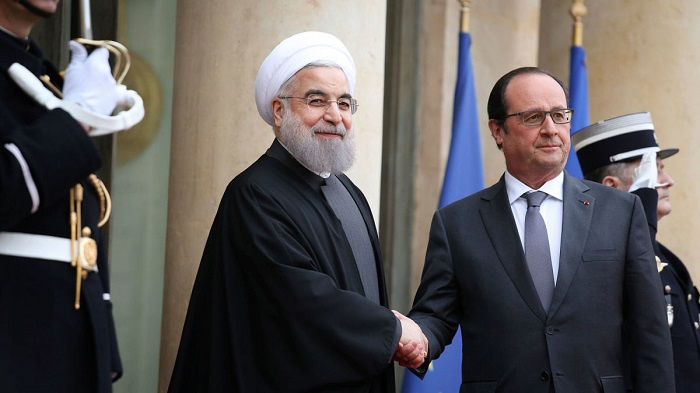JCPOA and Iran’s Return to the International Community

1395 (March 2016-March 2017) is the first year of implementation of the nuclear deal for Iran, with all its inevitable political, diplomatic and economic ramifications. JCPOA also is the starting point for returning to the international community and balancing relations with other countries, a shift that can pave the way for more rapid development inside the country. In its last full year of governance, Rouhani's administration still has to fulfill its promises to Iranian citizens. Iranian Diplomacy has interviewed Sadegh Maleki, political analyst, to discuss conditions for realization of development, particularly in economy, in the post-JCPOA era:
IRD: How do you evaluate Rouhani's foreign policy so far?
SM: Last year was a rewarding year for Rouhani in the diplomatic field, considering that he achieved the JCPOA. However, this is not enough. Rouhani's administration has promised 'hope', and is expected to bring structural changes to both foreign and domestic areas. There is a need to shift from traditional mentalities and ways of doing things in foreign and domestic fields and to lay groundwork for modernization of the state in all areas. This is how Rouhani can set his name as precursor to a new era in Iranian history.
IRD: But it seems that domestic challenges will not be as easy to solve as diplomatic challenges.
SM: Our diplomatic apparatus established our nuclear rights through internationally recognized norms and procedures. There is no reason the civil rights of Iranians in every field, be it politics or economy, could not be established through domestically recognized procedures. Besides JCPOA which was a diplomatic achievement, Rouhani's administration has on its record the improvement of the healthcare system as a domestic achievement.
IRD: Should we consider changes in the domestic political scene as the requisite to shift in foreign policy?
SM: I think that is a traditional perception; that is to see foreign policy as a function of domestic conditions. This viewpoint has lost its credibility in today's global relations. Part of change in Iran's policies were the result of international conditions. Global trends of these years make both domestic and foreign policies a function of the international climate. Sanctions and their consequent challenges, and JCPOA and its domestic and international outcomes clearly show how the external situation influenced domestic politics. Iran has missed opportunities in the post-Cold War era due to clinging to its traditional mentalities. Development is impossible without taking global factors into consideration, and establishing balanced relations with the world.
IRD: But Iran has seen significant development in the recent years.
SM: It's not about whether development took place or not in Iran, it's about the level of development, the price paid, and how it compares to other countries. Comparing the level of development to pre-revolution years is not an acceptable criterion anymore. If any comparison is to be done, it should be with neighboring countries. Iran, with its history and special geographical position, should not remain oblivious to global developments and their impact on foreign and domestic policies.
Khatami's administration with its Dialogue of Civilizations policy failed to fully achieve its development-oriented goals, but Rouhani's administration has brought backs hopes of change and return to the international community by clinching the nuclear deal. Rouhani's administration made a strategic decision drawing on the "heroic flexibility" directive issued by the Supreme Leader, which not only blocked the path towards war, but also paved the way to development.
IRD: So how should Rouhani proceed in the remaining months of his administration?
SM: He has already made a major achievement with the nuclear deal, but those who voted for him expect more. Structural changes that can improve the situation, particularly the economy, is one case. If Rouhani succeeds in synchronizing Iran with the international community through the post-JCPOA opportunity, there will be chances for change. This doesn't mean that we will relieve our independence, but that we will set global standards in political and economic levels. Foreign policy can be a great help in this regard.
Employment and business will be the most important mission either for Rouhani or the next administration. Despite the tough economic condition, Iranians voted for the [pro-Rouhani] List of Hope in February parliamentary elections to support rationality and moderation. If the nuclear deadlock was Iran's biggest challenge in foreign policy, unemployment is the toughest inside. Iranians, with their large population of young, educated workforce and plentiful resources, deserve better.
* This piece was originally published in Iranian Diplomacy Persian.

